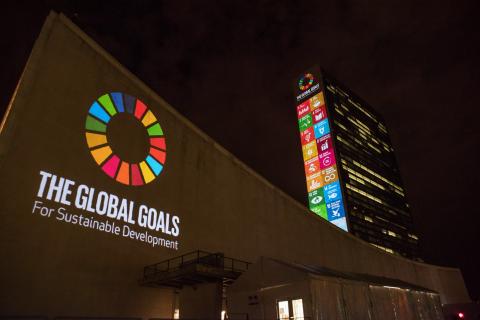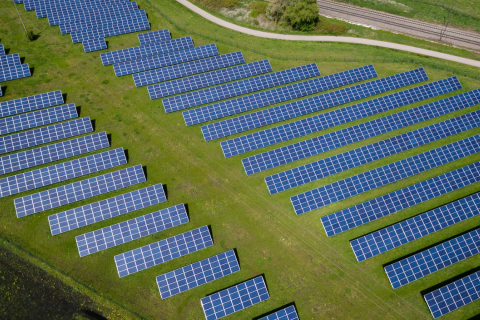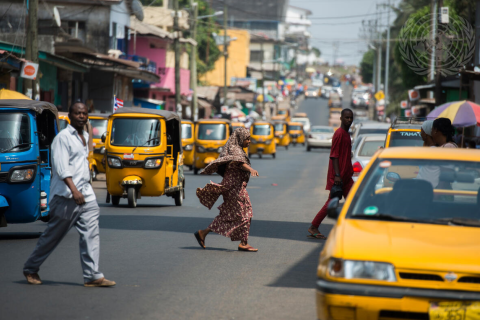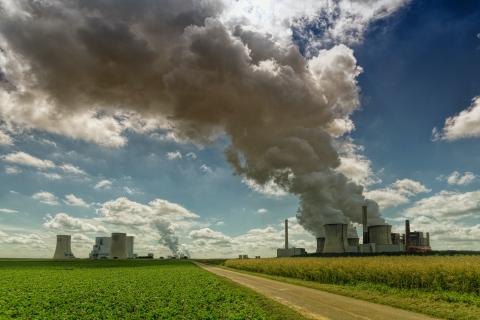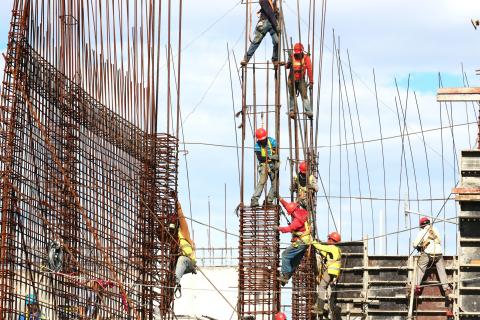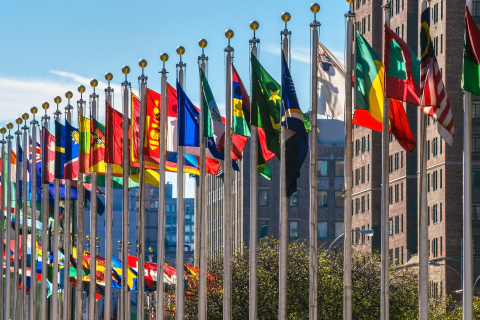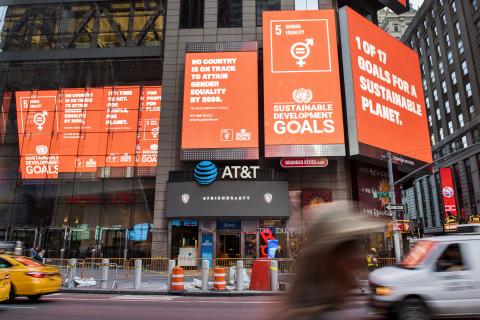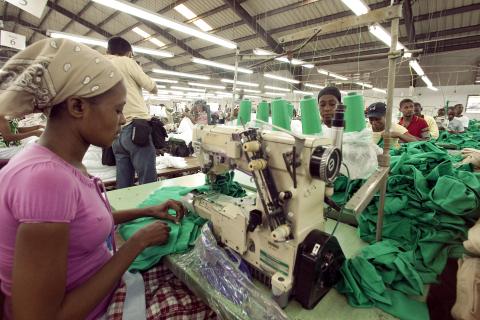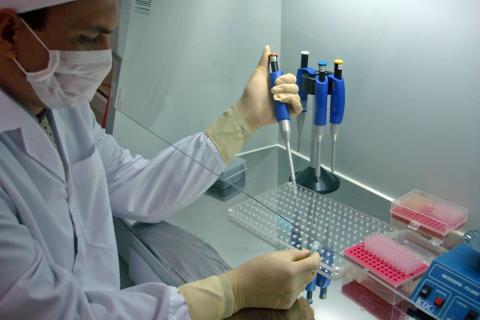UN DESA Policy Brief No. 174: Leveraging strategic foresight to mitigate artificial intelligence (AI) risk in public sectors
By leveraging collective intelligence and scenario planning, strategic foresight exercises can help ensure that AI technologies are developed and deployed responsibly, thereby increasing the likelihood of their positive contribution to sustainable and inclusive growth. Such forward-thinking methodologies are critical to mitigating risks and harnessing AI’s transformative power in advancing the SDGs.
UN DESA Policy Brief No. 171: Leveraging Critical Energy Transition Minerals: policy pathways for sustainable development
Developing countries with extensive critical energy transition mineral reserves have the potential to harness these resources for economic growth and sustainable development. However, doing so involves significant economic, environmental and social risks. Strong governance, strategic national policies and effective international cooperation are essential to maximize sustainable development benefits and avoid the so-called resource curse.
UN DESA Policy Brief No. 170 (Special Issue): Reimagining financing for the SDGs - from filling gaps to shaping finance
The United Nations Sustainable Development Goals are dangerously off track. The prevailing “gap-filling” approach to SDG financing has proven inadequate, failing to deliver the scale, impact or equity required. Global efforts remain fixated on mobilizing additional financing rather than embedding the SDGs at the core of economic and financial systems. Blended finance, often heralded as a silver bullet, has fallen short: public resources dominate blended deals, often de-risking private initiative in lower-risk, lower-impact projects. To redirect this trajectory, the international financing architecture must be reshaped around the SDGs.
UN DESA Policy Brief No. 158: How can we accelerate transformations to achieve the Sustainable Development Goals (SDGs)? Insights from the 2023 Global Sustainable Development Report
Progress on the SDGs requires integrated approaches operating at a systemic level that address multiple goals simultaneously. Interventions toward progress on a given target must also generate positive synergies with other targets, while resolving tradeoffs. Transformative change does not follow a linear path, and policy needs will vary across contexts and phases of transformation. Policies should respond to impediments unique to each phase – emergence, acceleration, or stabilization.
UN DESA Policy Brief No. 155: Accelerating middle-income countries’ progress towards sustainable development
Many MICs require international support to address current and long-term challenges. Eligibility criteria that rely only on income per capita limit available support – including access to concessional finance – without accounting for MICs’ multidimensional development needs.
UN DESA Policy Brief Special Issue: Financing the Sustainable Development Goals through mission-oriented development banks
There is an urgent need for channeling long-term risk-tolerant finance towards achieving the Sustainable Development Goals. The paper argues that National Development Banks (NDBs) and Multilateral Development Banks (MDBs) can play a crucial role in mobilizing the needed capital.
UN DESA Policy Brief No. 149: Promoting Youth Participation in Decision-Making and Public Service Delivery through Harnessing Digital Technologies
Public institutions shall take policy measures to address challenges and build an enabling ecosystem for youth engagement and participation, with a focus on bridging the youth digital divide and supporting digital skills development of youth.
UN DESA Policy Brief No. 141: A just green transition: concepts and practice so far
A globally just transition requires international support for developing countries that takes into account their’ realities, capacities, and priorities. Greening measures and strategies shouldn’t push people in other countries behind.
UN DESA Policy Brief No. 129: The monetary policy response to COVID-19: the role of asset purchase programmes
Central banks have relied heavily on unconventional monetary policy tools, especially large-scale asset purchases, to respond to the pandemic. These programmes have helped to stabilize financial markets and kickstart economic recovery. But the central bank asset purchases have also contributed to an underpricing of risk and sharp increases in asset prices.
UN DESA Policy Brief No. 125: Improving compatibility of approaches to identify, verify and align investments to sustainability goals
Regulators and other market participants have introduced a variety of mandatory and voluntary approaches to help investors align investments with sustainability goals.
UN/DESA Policy Brief #120: Investing in the future of rural non-farm economies
Development strategies that focus solely on urban development and leave rural communities behind are not adequate to overcome the development challenges we face.
UN/DESA Policy Brief #118: Policy implications of the disruption of the implementation of the 2020 World Population and Housing Census Programme due to the COVID-19 pandemic
Postponing census-taking will have adverse impact on assessing the effects of national development policies due to lack of granular census statistics in the 2020’s
UN/DESA Policy Brief #99: Why does corporate sustainability reporting matter to rebuilding better?
Business and financials models must be rethought to accelerate and strengthen business’ contributions to sustainable development
UN/DESA Policy Brief #97: COVID-19 and Beyond: Scaling up Private Investment for Sustainable Development
Further action is needed to better channel investment to countries and SDG-related sectors that are most in need. The development of innovative and scalable global platforms, instruments and funds would be an important first step in this regard.
UN/DESA Policy Brief #96: COVID-19: How the data and statistical community stepped up to the new challenges
New partnerships have been crucial in responding to new data demands, helping National Statistical Offices introduce measures that are permanently changing the statistical production process in many countries.
UN/DESA Policy Brief #85: Impact of COVID-19: perspective from Voluntary National Reviews
Multilateralism and global solidarity are essential to build back better by responding to COVID-19 in a way that supports the implementation of the 2030 Agenda and SDGs, bolsters results and addresses gaps in sustainable development.
UN/DESA Policy Brief #83: Recovering from COVID-19: the importance of investing in global public goods for health
Amidst deliberations on priority areas for rebuilding, much attention has been paid to the need to strengthen domestic health care, and such proposals will certainly be high on the agenda for many Governments. The crisis, however, has also shone a spotlight on the shortcomings of the global health system.
UN/DESA Policy Brief #77: How can investors move from greenwashing to SDG-enabling?
Companies must adapt their business model to reflect growing risks and uncertainties, and help build a sustainable world; doing so is necessary to preserve their financial performance in the long run
UN/DESA Policy Brief #71: COVID-19 pandemic deals a huge blow to the manufacturing exports from LDCs
The COVID-19 pandemic poses a significant economic challenge to LDCs that rely heavily on exporting manufactured goods, particularly clothing and apparel, amid global demand and supply-side shocks.
UN/DESA Policy Brief #62: The COVID-19 pandemic: a wake-up call for better cooperation at the science–policy–society interface
This brief suggests five early lessons from the response to the pandemic that can strengthen how science and technology are harnessed, including strengthening national capacities for science-based decision making.
 Welcome to the United Nations
Welcome to the United Nations


